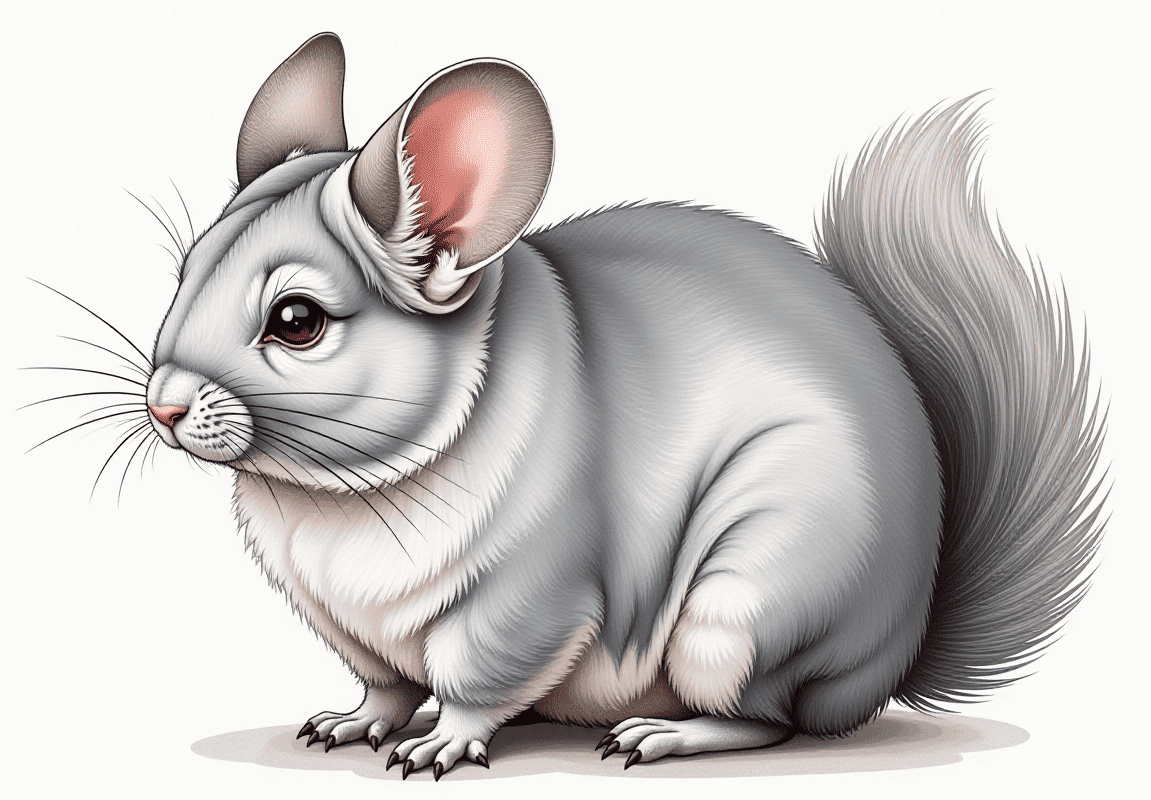Chinchilla Adoption: A Comprehensive Guide
Adopting a pet is an exciting experience, but it’s also a long-term responsibility. Many people are drawn to chinchillas because of their adorable appearance and soft fur, but these animals have unique needs that potential owners often underestimate.
If you’re considering adopting a chinchilla, it’s crucial to understand what you’re signing up for. Without proper care, these delicate creatures can become stressed, unhealthy, or even develop life-threatening conditions.
So, what does it really take to adopt and care for a chinchilla? Let’s break it down.
Why Chinchillas Make Unique Pets
Chinchillas stand out from other small animals in several ways. Their incredibly dense fur makes them hypoallergenic since it repels parasites and dander. They also have virtually no odor, unlike other small pets. Plus, with a lifespan of 10-15 years, adopting a chinchilla is a long-term commitment rather than a short-lived pet experience.
However, their personalities are what truly set them apart. Chinchillas are intelligent, curious, and social—though they require patience when building trust with their owners. They thrive in a stable, low-stress environment and need time to adjust to new people and surroundings.
The Challenges of Chinchilla Adoption
While chinchillas make fantastic pets, they aren’t for everyone. Here’s what you need to consider before bringing one home:

1. Space and Cage Requirements
Chinchillas need plenty of space to jump and explore. A small, single-level cage won’t cut it. Instead, they require a multi-level enclosure with platforms, hideouts, and plenty of chewable toys to prevent boredom.
2. Temperature Sensitivity
Chinchillas don’t tolerate heat well. Since their fur is so thick, they can easily overheat. Ideally, they should be kept in an environment between 60-70°F with low humidity. If your home gets warmer than this, you’ll need an air-conditioned setup to keep them comfortable.
3. Dietary Needs
Chinchillas have sensitive digestive systems that rely on a high-fiber diet. Hay should make up 75-80% of their diet, supplemented with high-quality pellets and occasional chinchilla-safe treats like dried herbs or rose hips.
4. Veterinary Care
Not all veterinarians are experienced with chinchillas. Finding an exotics vet is crucial for their health. Common issues like dental overgrowth and gastrointestinal stasis require specialized care and early intervention.
5. Time Commitment
While chinchillas don’t need constant attention, they do require daily interaction and mental stimulation. They are naturally active at dawn and dusk, so they fit best with owners who can accommodate their schedule.
Where to Adopt a Chinchilla
Choosing the right source for adoption ensures you bring home a healthy and well-adjusted pet.
- Rescue Centers & Shelters: Many chinchillas end up in shelters due to owners underestimating their care needs. Adoption from a rescue often includes support and advice from experienced staff.
- Reputable Breeders: If you choose a breeder, ensure they follow ethical practices, provide proper care, and prioritize animal welfare.
- Online Adoption Platforms: Sites like Petfinder connect adopters with chinchillas needing new homes. Always verify the source before proceeding.
Setting Up Your Home for a Chinchilla
Before bringing your chinchilla home, ensure you have the right setup:
- Spacious Multi-Level Cage: Wire cages with solid floors and ramps prevent foot injuries.
- Safe Bedding: Avoid pine or cedar shavings; opt for aspen or fleece liners instead.
- Dust Bath: Chinchillas clean themselves using fine volcanic dust, which should be provided a few times a week.
- Toys & Enrichment: Chew toys, tunnels, and exercise wheels (without spokes) help keep them active and prevent boredom.
- Chinchilla-Proofed Play Area: If you plan to let them out for exercise, remove any potential hazards like electrical cords or small objects they might chew.

The First Few Days: Helping Your Chinchilla Adjust
Bringing a chinchilla home is an exciting moment, but it can be overwhelming for the animal. Here’s how to make the transition smooth:
Establish a Routine: Consistency in feeding and social interaction builds trust.
Give Them Time: Avoid handling them immediately. Let them explore their new cage and get used to their surroundings.
Speak Softly: Chinchillas are prey animals and can be skittish. Talking gently helps them recognize your voice and feel safe.
Challenges of Chinchilla Adoption
Owning a chinchilla comes with challenges that shouldn’t be overlooked.
Chinchillas are prey animals and can be easily stressed by sudden movements or loud noises. Providing a calm and predictable environment is essential.
Common health problems include dental overgrowth and gastrointestinal stasis. Regular vet visits and a proper diet can help prevent these issues.
With a lifespan of 10-15 years, adopting a chinchilla is a long-term responsibility. Make sure you’re ready for the commitment before bringing one home.
Common Myths About Chinchilla Adoption
Myth #1: Chinchillas Are Low-Maintenance Pets
While they don’t require daily walks, they do need a carefully controlled environment, a specialized diet, and regular social interaction.
Myth #2: They’re Good Pets for Kids
Chinchillas are fragile and don’t enjoy excessive handling. Young children may not have the patience or gentleness needed to interact with them properly.
Myth #3: Any Cage Will Do
Chinchillas need large, multi-level cages with ample space for movement. A cramped environment can lead to stress and health issues.
Tips for a Successful Adoption
- Choose the Right Chinchilla: Each chinchilla has a unique temperament. Spend time observing them before making a decision.
- Join Chinchilla Communities: Online forums and social media groups can offer invaluable advice and support from experienced owners.
- Be Patient: Building trust takes time, but once a chinchilla bonds with you, they can become incredibly affectionate and interactive.
Conclusion
Adopting a chinchilla is a rewarding experience, but it requires careful consideration and preparation. If you’re willing to commit to their needs, these intelligent and playful pets can bring years of joy and companionship.
Before making your final decision, take time to research, prepare your home, and ensure you’re ready for the responsibility. If you’re fully committed, adopting a chinchilla can be one of the most fulfilling experiences as a pet owner.
